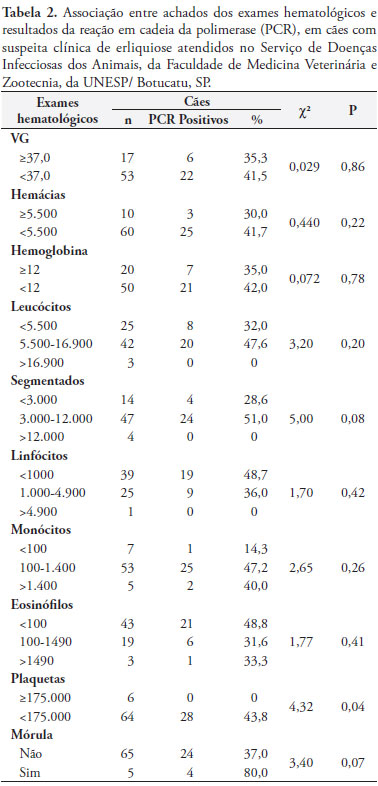This study investigated the etiology of canine ehrlichiosis and possible clinical and epidemiological data associated with the infection in 70 dogs suspect of ehrlichiosis attended at the Veterinary Hospital of the São Paulo State University in Botucatu city during 2001 and 2002. Dogs were evaluated by clinical-epidemiological and hematological data and molecular analysis by partial amplification and DNA sequencing of the ehrlichial dsb gene. E. canis DNA was amplified and sequenced in 28 (40.0%) dogs. Dogs younger than 12 months old showed significantly higher infection rates (65.0%; P < 0.05). Diarrhea, apathy, and anorexia were the major clinical signs observed in 55.2% (P = 0.05), 47.0% (P > 0.05), and 42.4% (P > 0.05) of the PCR-positive dogs, respectively. Twenty-five anemic (<5.5 × 10(6) RBC.µL-1), and 8 leukopenic (<5.5 × 10³ WBC.µL-1) dogs were PCR-positive (P > 0.05). All 28 PCR-positive dogs showed thrombocytopenia (<175 × 10³ platelets.µL-1) and revealed statistical significance (P < 0.05). E. canis was the only Ehrlichia species found in dogs in the studied region, with higher infection rates in younger dogs, and statisticallyassociated with thrombocytopenia.
Ehrlichia canis; PCR; Brazil; dogs; ehrlichiosis


